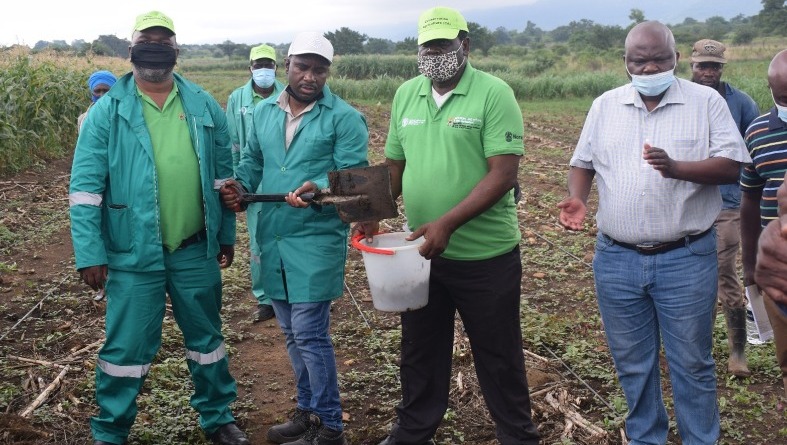The current farming methods in South Africa (SA), which are mainly conventional, are in dire need for change if Conservation Agriculture (CA) model is anything to go by. Tons of soil is lost annually due to conventional farming practice, thus leading to the depletion and degradation of natural resources.
According to Le Roux et al. (2008), the average soil loss in areas under grain crops in SA is 13 ton/hectare/year. This is much higher than the natural soil formation rate and it implies that almost 3 tons of soil is lost per hectare (ha) for every ton of maize produced yearly.

Following the soil survey and fertility held at Tompi Seleka College of Agriculture signifying the importance of soil as a contributor to livelihoods, and for spatial planning, Limpopo Department of Agriculture and Rural Development (LDARD) intensified the awareness campaigns through educational tour for demonstration for use of No Till planter and boom spray to a CA practitioner, Ratshilumela Makhale in Tshivhilwi, Thulamela Municipality, Vhembe District.
The move was to teach the best practices of sustainable land management, encourage active participation by community and collaborations.
Following the various presentations on sustainable soil management, cause of salinity and waterlogging: preventative measures and solution, participants have witnessed the smart agriculture at Makhale’s 4.1 ha comprising of mixed farming, which won him National Land Care Award. In his demonstration, Makhale said with CA, a farmer can harvest every little moisture through a No-Till system using drip irrigation, which will bring good and desirable yields. It was clear that with the quality and quantity of the mixed vegetables in his project, CA has noticeable impact.
Makhale said CA has minimum tillage / no soil disturbance, permanent organic soil cover through mulching and multiple cropping and crop rotation. CA is cost effective and has high production yield as compared to conventional agriculture which is expensive and requires physical ability.
CA model has been practised across the globe for many years compared to SA. It simply comes with huge benefits of maximizing yields and profits than conventional farming, which is not sustainable.
CA is an initiative from Land Care Programme, which is a tool to assist all farming communities about the new farming approach that manages natural resources properly and efficiently. The conservation techniques could assist farmers to adapt to climate smart agriculture.
It increases soil organic matter, reduces greenhouse gas emissions due to less external inputs, increases water infiltration that reduces runoff and soil erosion, increases commodity and livestock production, compliances to environmental legislation, improves biodiversity and ecosystem functioning, and lower production costs.


